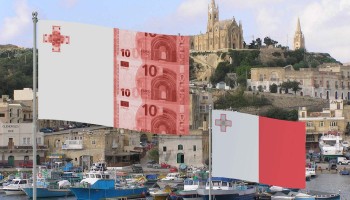In June 2018, a Transparency International (TI) investigation found Babiš was the owner of Agrofert, a Czech conglomerate with two national newspapers and a major commercial radio station. He had moved ownership to trust funds to avoid scrutiny, but remains the beneficiary of the trusts.
As of last November, according to Bloomberg, Babiš’s total net worth was $3.5 billion, making him the second richest man in the Czech Republic.
TI referred the matter to Babiš’s local council, because Czech law requires conflict of interest complaints to be registered with the relevant local authority, and to the European Parliament.
While Černošice Council, which governs about 7,000 people, can only impose a fine of 250,000 Czech crowns (US $11,122) as a penalty, the ruling may have implications for the ongoing European Parliament investigation into Babiš.
The council brought in legal experts, but Babiš has said he will appeal its decision. In a text message to Czech journalists, according to Guardian, he said: “I do not understand how officials who deal with traffic offenses can decide on such a complex legal problem.”
“The possibility of the Černošice ruling being transferred to the European complaint really worries Babiš.” said David Ondráčka, director of TI’s Czech office.
TI went to the European Parliament because the Conflict of Interest Act prohibits ministers from ownership or control of the media, but also because Babiš’s company has previously received EU susidies for its agricultural arm, which is also restricted by EU law.
One of these subsidies, amounting to $2.25 million, was investigated by the EU’s Anti-Fraud Office between 2015 – 2017. Babiš was charged in this matter in October 2017 after colleagues voted to lift his parliamentary immunity. However, when he won the 2017 election for prime minister, he regained immunity. He has remained in that position and immune despite parliamentary members again voting to strip him of his immunity in January 2018, and mass protests in late 2018 demanding he resign.
In December 2018 the European Commission suspended the subsidies to Agrofert.
It also announced then that all Agrofert subsidies since Babiš's entry into politics will be audited and the results known by mid-April 2019.
In November 2018, Guardian reported that Babiš’s son was claiming to have been “kidnapped” to avoid testifying to police investigating the subsidies. Babiš said his son, who he claims is mentally ill, had been tricked into making the allegation.
TI’s Communications Director David Kotora has previously made the point that “Czech media have been strikingly passive about the whole situation, (and) did not build on these findings.”






